Williamson County Child Custody Attorneys
Protecting the Parent-Child Relationship
What is the most important thing to you when it comes to your child? Is it their safety? Their happiness? Their education? Their future? As a parent, we know you want the best for your child. Unfortunately, so does the other parent, and this can lead to serious legal disputes.
In a child custody case, the court will make decisions regarding your child’s “best interests.” This means that the judge will decide where your child lives, how much time they spend with each parent, and who makes important decisions on their behalf.
At Cofer & Connelly, PLLC, our Williamson County child custody lawyers understand that your child is your top priority. We are here to fight for you and help you obtain the custody arrangement that is in your child’s best interests.
To learn more about how we can help you with your child custody case, call us today at (512) 991-0576 or contact us online.
Understanding Texas Child Custody Laws
There are two types of child custody in Texas: physical custody and legal custody. Physical custody refers to where your child lives, while legal custody refers to who makes important decisions on your child’s behalf. Child custody is often referred to as a “possession order” or a “parenting plan.”
Possession & Conservatorship
“Possession” refers to the amount of time each parent spends with the child. The “possessory conservator” is the parent who has the right to spend time with the child. The “managing conservator” is the parent who has the right to make decisions on behalf of the child.
It is important to note that the court is required to appoint one managing conservator, which is known as “sole custody.” However, the court can also appoint both parents as managing conservators, which is known as “joint custody.” This does not mean that the parents have equal possession of the child, but rather that they have equal decision-making power.
What Is a Standard Possession Order?
A “standard possession order” is a type of possession order that is often used in Texas. Under a standard possession order, the non-custodial parent has the right to see the child on the first, third, and fifth weekends of every month. The non-custodial parent also has the right to see the child on Thursdays during the school year.
A standard possession order also provides for the non-custodial parent to spend time with the child during the summer, as well as on certain holidays. A standard possession order also provides for the non-custodial parent to spend time with the child on their birthday.
What Is a Parenting Plan?
A “parenting plan” is a document that outlines the rights and responsibilities of each parent. A parenting plan can be as general or as specific as you would like. A parenting plan can also be temporary or final. Temporary parenting plans are often used in child custody cases, as they can be modified at any time. Final parenting plans are often used in divorce cases, as they become a part of the final divorce decree.
A parenting plan can be created by the parents, or it can be created by the court. If the parents cannot agree on a parenting plan, the court will create one.

Our Impact
The Experience and Proven Track Record Your Case Needs
-
200+ Years' Combined Experience
-
95% of Cases Dismissed, Acquitted, or Reduced
-
Thousands of Cases Handled
-
Award-Winning Legal Representation
-
Voted Best Lawyer Five Years in a Row by the Austin Chronicle
-
Former Felony Prosecutors and Judge Defending You

More experience. More strategy. More dedication. At Cofer & Connelly, our team
of seasoned trial lawyers, including former prosecutors and award-winning advocates,
brings over 200 years of combined experience to every case. When everything’s on
the line, we don’t settle—we do more.












